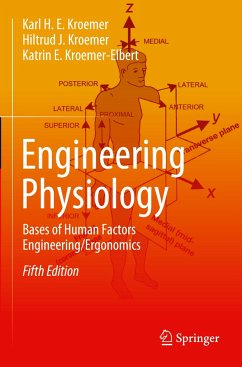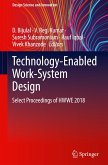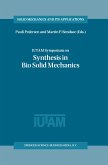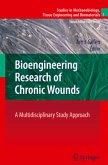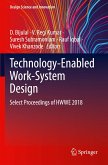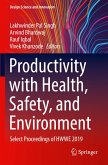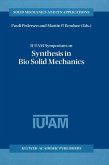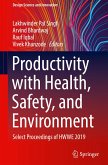This fifth edition of "Engineering Physiology" has the same purpose as the earlier prints: to provide physiological information which engineers, designers, supervisors, managers and other planners need to make work and equipment "fit the human." Chapters have been revised, figures and tables updated. New material discusses, among other topics, models of the human body that provide practical and design-oriented information, biomechanics describing the body's capabilities and limitations, effects of shift work / sleep loss on attitude and performance, and new techniques to measure body sizes and the resultant changes in applications of that information.
The book does not replace standard (biological-medical-chemical) textbooks on human physiology; instead, it provides information on human features and functions which are basic to ergonomics or human (factors) engineering, terms often used interchangeably. It helps lay the foundations for teamwork amongengineers and physiologists, biologists and physicians. Bioengineering topics concern bones and tissues, neural networks, biochemical processes, bio- and anthromechanics, biosensors, perception of information and related actions, to mention just a few areas of common interest.
Such understanding provides the underpinnings for devising work tasks, tools, workplaces, vehicles, work-rest schedules, human-machine systems, homes and designed environments so that we humans can work and live safely, efficiently and comfortably.
The book does not replace standard (biological-medical-chemical) textbooks on human physiology; instead, it provides information on human features and functions which are basic to ergonomics or human (factors) engineering, terms often used interchangeably. It helps lay the foundations for teamwork amongengineers and physiologists, biologists and physicians. Bioengineering topics concern bones and tissues, neural networks, biochemical processes, bio- and anthromechanics, biosensors, perception of information and related actions, to mention just a few areas of common interest.
Such understanding provides the underpinnings for devising work tasks, tools, workplaces, vehicles, work-rest schedules, human-machine systems, homes and designed environments so that we humans can work and live safely, efficiently and comfortably.

